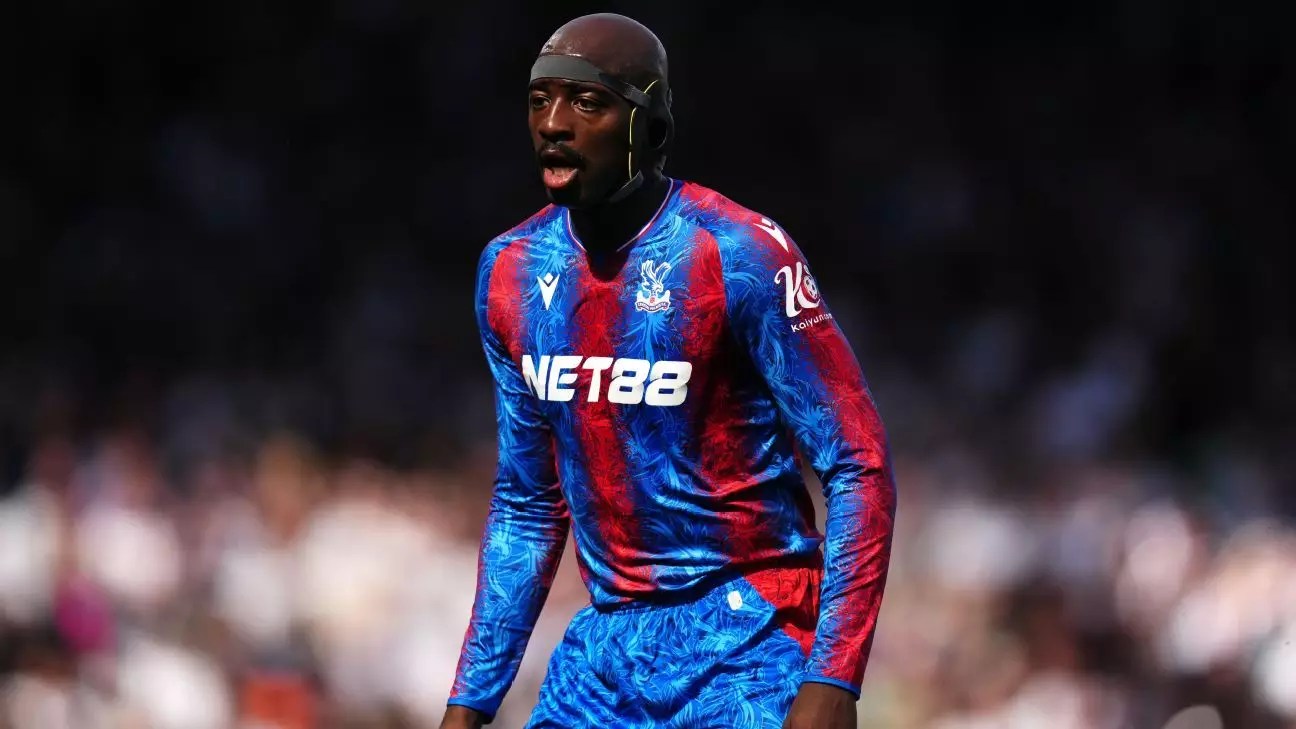Jean-Philippe Mateta’s recent return to the pitch after a traumatic injury is more than just a comeback; it embodies the essence of resilience in sports. The Crystal Palace striker made headlines not only for his skills on the field but for the harrowing experience he endured following a brutal clash with Millwall’s goalkeeper, Liam Roberts. The incident, which left Mateta with a lacerated ear requiring 25 stitches, serves as a stark reminder of the physical toll that sports can impose on its athletes. As he donned a protective helmet for his first match since the injury, Mateta’s attitude highlighted a broader narrative of endurance and the mental fortitude necessary to succeed in competitive environments.
The Nature of Injury and Mental Resilience
In an interview with L’Equipe, Mateta revealed the terrifying moments post-injury, making it clear that the gravity of the situation could have been much worse. The fear of broken bones or worse injuries haunted him until he confirmed that the worst was indeed a badly damaged ear. His sheepish admission, “I was lucky because if I hadn’t, I would have taken his foot right in the head,” shows not only the danger of the sport but also the instinctive reflexes that can protect a player from even graver consequences. The very nature of professional sports means that the glory of moments—and the subsequent agony of mishaps—coalesce in vicious cycles; Mateta’s mindset of “I want to play again” after sustaining such an injury reveals a robust psychological approach that many athletes strive to emulate.
The Fallout and Learning Opportunities
Roberts, the Millwall goalkeeper involved in the unfortunate collision, faced a significant backlash following the incident, receiving a three-game ban extended to six. This aspect of Mateta’s story reveals the often-overlooked dark side of competitive sports, where emotional volatility can lead to serious repercussions for players—both physically and emotionally. Despite the duress, Mateta exhibited remarkable sportsmanship, reaching out to Roberts while still in the hospital to ease tensions; “It is OK, it is football,” he reassured. This reaction not only shows Mateta’s grace but also serves as an educational moment on sportsmanship and empathy in the face of adversity. Athletes, especially in high-pressure situations, can find themselves in regrettable circumstances and should learn from them.
The Role of Support Systems in Recovery
Mateta’s path back to fitness signifies more than just individual courage—it highlights the pivotal role that medical teams, coaching staff, and personal support systems play in an athlete’s recovery. Manager Oliver Glasner’s confidence in Mateta’s ability to return to form offers insight into the collaborative efforts necessary in professional sports. Glasner’s comments reflect an understanding that recovery is not solely physical; it includes regaining mental trust in one’s body after trauma. By ensuring Mateta felt both physically equipped through protective gear and mentally reassured, the coaching staff created an environment conducive to his return. The careful selection of protective equipment approved by the Premier League symbolizes a broader commitment to player well-being and could serve as a model for other clubs facing similar situations.
Looking Forward: The Player’s Resilience
With 15 goals under his belt this season, Mateta’s performance prior to the injury speaks volumes about his capabilities as a vital player for Crystal Palace. While returning from an injury can often instill hesitation in athletes, especially after experiencing (or witnessing) a significant trauma, Mateta appears determined to move forward with his career unhindered. The mental adjustments athletes must make to re-engage in physical challenges, particularly after an injury, can lay the groundwork for both future success and the development of grit within their playing careers.
In a sport filled with unpredictability and pressure, Mateta is not just returning to the pitch; he is sending a powerful message about resilience, support, and the spirit of competition. His journey thus far exemplifies the essence of what it means to battle hardship and emerge even stronger, reaffirming his commitment to excellence and the resilience that defines athletes everywhere.


Leave a Reply